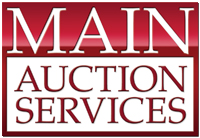Want to sell or consign your equipment?
Call us and learn how!
Se Habla Español
Dallas:
972-642-0513
Arlington:
682-252-4020
Irving:
972-579-4612
Of all the equipment in a professional baker’s kitchen, your commercial mixer is one of the most important investments you will make. It doesn’t matter if you are just starting out or upgrading/replacing older equipment: the right mixer with the right features and attachments can make or break your bakery business.
With so many options to choose from, the selection process can be a little intimidating. To simplify the process, we've developed this general overview to help you understand the different types of commercial bakery mixers and their various features and attachments. Take a look at what we've got for you:
Mixer Type
There are three types of commercial-grade bakery mixers with the capacity and capability to handle large scale bakery operations. Here’s a rundown of the different types:
Planetary Mixers
A vertical stand mixer with a deep bowl, planetary mixers move an agitator on an offset shaft while the high-capacity bowl is held stationary. Agitator attachments can be quickly exchanged depending on the mixing task at hand, and most planetary mixers can handle any bakery preparation task from pizza dough to icing.
Dough Mixers
Sometimes referred to as spiral mixers, these vertical mount mixers have a stationary, spiral-shaped agitator. Rather than mixing contents with a moving agitator, dough mixers rotate the bowl around the agitator to thoroughly mix all ingredients throughout the mixing cycle. This minimizes ingredient waste and makes dough mixers ideal for high volume bakeries that have a significant amount of thick or high-density dough to make daily.
Vertical Cutter Mixers
The “drag racer” mixers of the commercial baking world, vertical cutter mixers sport covered high capacity bowls paired with high horsepower motors and high RPM capable interior agitators. Vertical cutter mixers can mass produce just about any baking material in bulk much faster than their traditional commercial grade mixer counterparts.
Mounting Type
Knowing how your mixer will be stored or mounted is an important part of choosing the right model for your bakery. Here are some potential mounting options to get you started:
- Countertop Mixers- suitable for 10 qt. or fewer capacity models, countertop mixers may or may not be permanently mounted into a fixture for optimal performance.
- Stand Mixers- suitable for 10-20 qt. mixers, stand mixers are mounted to a free-standing cart or specialty mixer stand, both of which come equipped with casters for better mobility and easier storage when they are not in use.
- Floor Mixers-typically only used with mass quantity commercial operations, floor mixers are permanently mounted into the floor of a bakery facility to accommodate their need for exceptional stability when in operation.
Drive Systems
How the agitator or bowl mixing apparatus is driven by the motor may seem like a minor detail, but it can have a significant impact on the long-term cost of owning your mixer. Here are some examples:
Belt Drive
Mixers that use belt drives may require more frequent maintenance, but exchanging a drive belt on a commercial mixer is significantly less expensive than repairing a direct drive system. Additionally, belt drives can suffer from slippage and reduce RPMs as they wear out.
Gear/Direct Drive
Well-known as the most durable of the two available drive systems, gear-driven mixers can run for years or even decades without requiring anything but the most basic routine maintenance. Fair warning, though: when a gear-driven mixer breaks down, the repair is going to be expensive.
Accessories
Mixing Bowls- Custom bowls shaped for specific tasks and ingredients have become the norm among baking professionals. Generally, they are paired with specific agitators or attachments
Flat Beater- The “jack-of-all-trades” agitator attachment for cakes, cookies and other bakery delights.
Wire Whip- Your go-to attachment for light fluffy items like pudding, whipped cream, custard or any other confection/dish that requires a light, thin texture.
Dough Hook- Knead and fold that pizza or bread dough! Dough hooks make light work out of even the thickest dough.
Pastry Knife-Slice through even the heaviest and thickest dough to combine ingredients.
BowlScraper-Never wash wasted flour and other ingredients out of your mixing bowl between batches again. Bowl scraper attachments not only keep your mixing bowl clean, but also allow you to ensure that nothing gets left behind or wasted when you are mixing up a fresh batch.
Are you a commercial baker in the Irving or Grand Prairie area? Need a new commercial-grade mixer or have one for sale? Contact Texas Restaurant supply today. We have the selection to get you exactly what you need at the right price. Better still, if your existing equipment is still in serviceable condition, we’ll be happy to give you a fair price. Call or visit our website today for more information.
- Different Types of Commercial Bakery Mixers & Their Attachments
- Elegir el Calentador de Alimentos Adecuado para tu Cocina Comercial
- Choosing the Right Food Warmer for Your Commercial Kitchen
- Pizza Prep Table: Essential Equipment for Pizza Restaurants
- Consejos para mantener tu batidora de pie
- Tips to Maintain your Stand Mixer
- Consejos para Mantener tu Batidora de Pie
- Tips to Maintain your Stand Mixer
- De la Preparación al Plato: La Importancia de las Mesas de Trabajo en las Cocinas Comerciales
- From Prep to Plate: The Importance of Work Tables in Commercial Kitchens
- Entendiendo las Mesas de Vapor Comerciales y sus Funciones en Restaurantes
- Understanding Commercial Steam Tables and Their Functions in Restaurants






